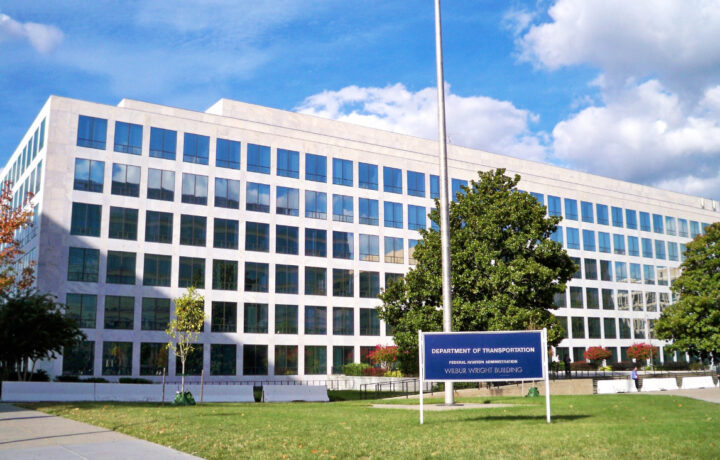On Wednesday, Senate Majority Leader John Thune told reporters at the Capitol that bipartisan talks aimed at ending the government shutdown have “ticked up significantly,” even as the shutdown is now in its fourth week. A vote in the United States Senate —the 14th —won’t take place until Thursday.
The White House has said that if a compromise isn’t reached soon, benefits could be frozen for the Supplemental Nutrition Assistance Program (SNAP), which helps 42 million low-income Americans and people with disabilities buy food.
Millions have already experienced delays at the nation’s airports, where Federal Aviation Administration (FAA) staff shortages have increased four times since the shutdown began on October 1.
Busiest Airports Impacted
Travelers flying in or out of Dallas/Fort Worth International Airport (DFW) experienced significant delays on Monday, with the average being about 18 minutes, and some as long as 72 minutes.
Staffing issues have impacted flights from all major United States airports, including Los Angeles, Chicago, Denver, New York, Houston, and Atlanta.
The delays are expected to get worse as air traffic controllers missed their first paychecks on Tuesday, and there are concerns that the added financial stress could affect the already understaffed employees tasked with guiding thousands of flights daily.
High-Stress Job at Normal Times
Secretary of Transportation Sean Duffy and the president of the National Air Traffic Controllers Association, Nick Daniels, have warned that air traffic controllers are feeling unnecessary added pressures and that the situation is likely to get worse if the government shutdown continues.
As with other federal workers, the air traffic controllers aren’t being paid and won’t be until the shutdown is resolved. That has raised concerns over those who need to pay rent, mortgages, and even to buy groceries. Those with medical issues or who have relatives with severe conditions are also expressing concern.
“Air traffic controllers have to have 100% of focus 100% of the time,” Daniels told reporters on Tuesday alongside Duffy at LaGuardia Airport in New York. “And I’m watching air traffic controllers going to work. I’m getting the stories. They’re worried about paying for their daughter’s medicine. I got a message from a controller that said, ‘I’m running out of money. And if she doesn’t get the medicine she needs, she dies. That’s the end.'”
Expect More Delays
Even those who aren’t directly impacted by the government shutdown are likely to feel some added stress, especially if it means heading to the airport. For safety reasons, the FAA will restrict the number of flights that can take off and land at an airport whenever there is a shortage of controllers.
That has meant delays of an hour, but recent reports indicate that flights were delayed by nearly two hours at Los Angeles International Airport this past weekend.
Fears of a Sick Out or Worse
Since the shutdown began, some controllers have called out sick, either due to frustration and stress or, in some cases, to work another job. According to a Politico.com report, 44% of flight delays on Sunday were due to staffing shortages.
Secretary Duffy has warned that controllers who abuse their sick time could face disciplinary actions.
However, the FAA has said that the majority of controllers have continued to report for duty, many working six days a week.
Duffy said that the shutdown could complicate efforts to recruit those interested in becoming controllers. There is already a nationwide shortage of about 3,000, and according to Duffy, since the start of the shutdown, some students have dropped out of the air traffic controller academy in Oklahoma City. Those training on the job may also seek another career if they can’t afford to go without pay.
“This shutdown is making it harder for me to accomplish those goals,” Duffy added, according to The Associated Press.
Controllers last received a partial paycheck on October 15.
“This shutdown has real consequences for these hard-working American patriots,” Daniels warned. “With each passing day, controllers become more distracted by the risk of receiving a zero-dollar paycheck on October 28, despite working 40 hours per week and, in many cases, mandatory overtime due to the controller staffing shortage.”



